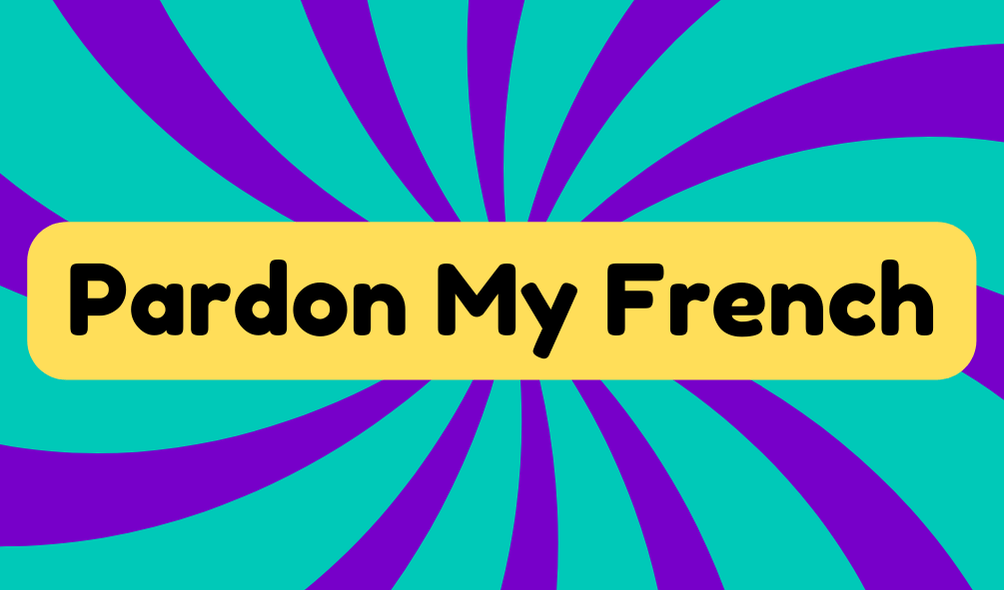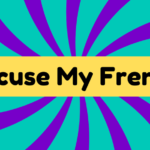The phrase "pardon my French" is used to soften the impact of strong language or frustration. Originating in the 19th century, it reflects English-French cultural tensions, often mocking the supposed elegance of French words used inappropriately. Though it aims to maintain civility, overuse can diminish its effectiveness and authenticity. This expression reveals the nuances of modern communication, balancing eloquence with raw emotion. While it remains relevant in casual dialogue, a critical understanding of its context is essential to avoid misunderstandings. There is much more to explore regarding its usage and cultural significance that can enhance your grasp of language.
Synonyms
The phrase "pardon my French" has generated a variety of synonyms that similarly convey the intent of apologizing for the use of coarse language. These alternative expressions reflect modern adaptations that have evolved alongside societal changes. Here are three significant options:
- "Excuse my language" – A straightforward acknowledgment of inappropriate speech.
- "Pardon my outburst" – Conveys acknowledgment in a more specific context of anger or frustration.
- "Forgive my choice of words" – A more formal way to apologize for offensive language.
While these alternatives retain the original intention, they reveal an underlying trend toward mitigating the harshness of our words. Embracing these synonyms can facilitate a more nuanced approach to communication, allowing individuals to express frustration without neglecting civility.
Example of Sentences
Exploring practical applications of the phrase "pardon my French" reveals its versatility in everyday communication. This humorous phrase serves as a linguistic tool for softening the blow of inappropriate language, reflecting cultural perceptions of propriety. Consider the following examples:
- "The situation is absolutely chaotic; pardon my French."
- "He is quite the jerk today; pardon my French."
- "This meeting is dreadfully dull; pardon my French."
These sentences illustrate how individuals can navigate potentially offensive expressions while maintaining a semblance of decorum. However, the overreliance on this phrase may dilute its intended effect, prompting skepticism about authenticity and accountability in language. Ultimately, understanding its implications is essential in fostering effective communication, making this historical expression relevant in contemporary discourse.
Origin
Originating in the 19th century, the phrase "pardon my French" reflects a time when the French language was considered a mark of sophistication among English speakers. This linguistic expression serves as a lens through which we can view historical evolution and the complexities of language rivalry. In an era when French culture often overshadowed English, using the language—particularly inappropriate terms—offered a semblance of elegance. However, this also birthed a need for apologies, particularly when listeners were unfamiliar with the foreign words. The rivalry between England and France shaped perceptions of vulgarity, leading to the ironic association of crude phrases with French origins. Consequently, the phrase embodies both cultural aspirations and the societal shifts surrounding language interpretation.
Collocations
Collocations play a significant role in understanding the phrase "pardon my French," as they illustrate the contexts in which it is commonly employed. This phrase often intertwines with specific expressions, drawing attention to swearing etiquette and humorous apologies. Consider the following examples:
- "I'm frustrated with the situation; pardon my French."
- "This is
How to Use in Everyday Language
While maneuvering through everyday conversations, employing the phrase "pardon my French" can effectively lighten the mood, particularly when expressing frustration or employing strong language. This pardon phrase acts as an informal expression that serves both as an apology and a playful acknowledgment of one's choice of words. It often mitigates the impact of potentially offensive language, allowing speakers to express themselves more freely. However, one must wield this expression cautiously; overuse may diminish its intended humor. Understanding the context in which this phrase operates is vital for effective communication, as it reflects a blend of cultural history and contemporary conversational dynamics. Ultimately, judicious use can enhance interactions while maintaining a degree of decorum.
Why Is It Still Relevant Today?
Why does the phrase "pardon my French" continue to resonate in contemporary conversations? Its enduring cultural relevance stems from a broader reflection of linguistic shifts and societal attitudes. Initially used to excuse the inclusion of foreign terms, it has transformed into a humorous preface for swearing. In today's fast-paced communication landscape, where innovation often collides with tradition, this phrase serves as a linguistic bridge connecting historical context with modern casual interactions. However, one must critically assess its appropriateness, as reliance on euphemisms can dilute authentic expression. The phrase remains a cultural artifact, highlighting our struggle to balance eloquence and raw emotion—an issue as relevant now as it was in the past. Ultimately, its persistence invites reflection on our evolving language conventions.






